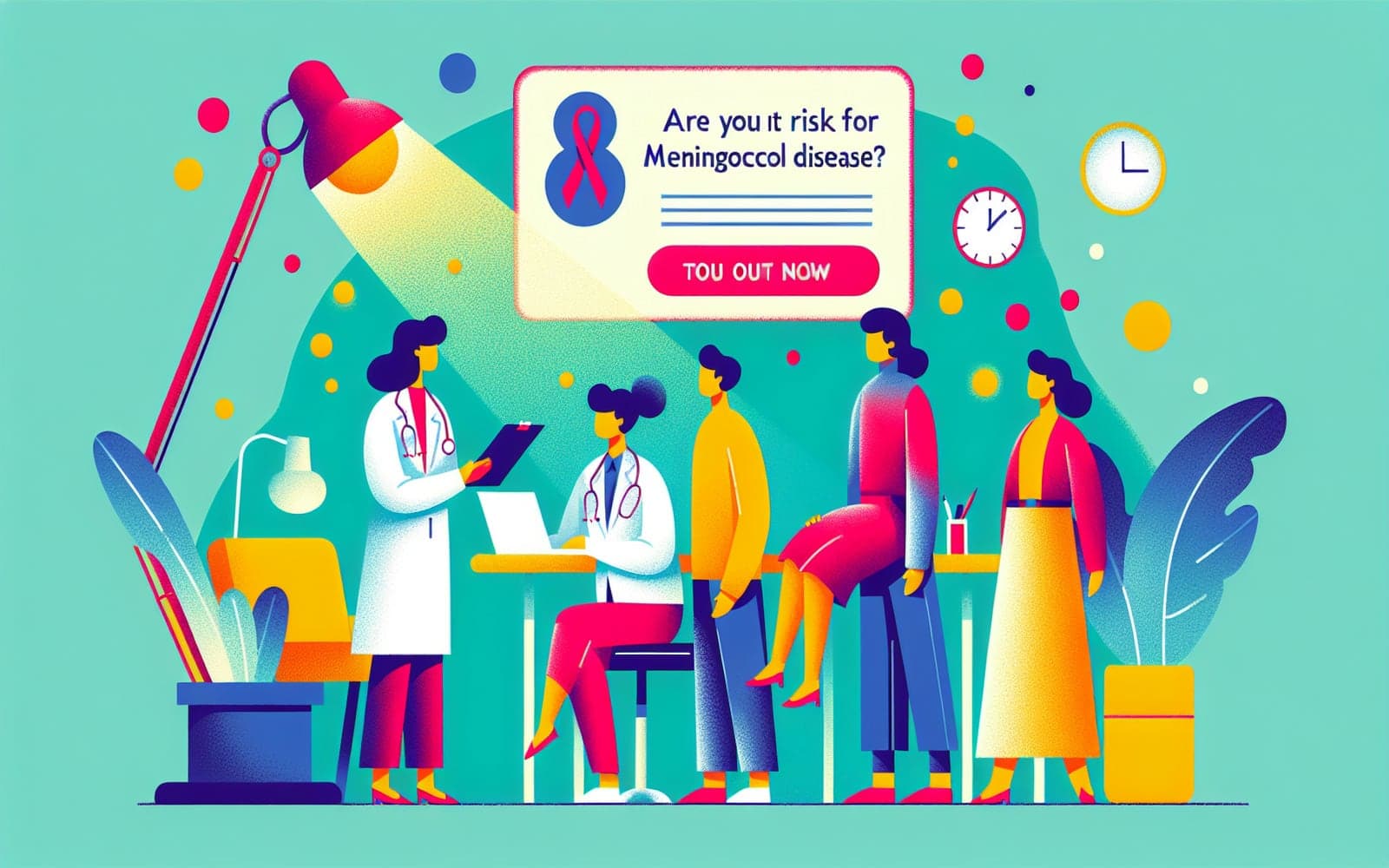Are You at Risk for Meningococcal Disease? Find Out Now
Published: Mar 06, 2024

Medically reviewed by Alan Lucks | MD, Alan Lucks MDPC Private Practice - New York on March 6th, 2024.
Meningococcal disease can affect anyone, but certain factors increase your risk. Understanding these can help you take preventive measures and stay alert.
Contents
Age Matters
Your age plays a significant role in your risk for meningococcal disease. Infants under one year old are most vulnerable, followed by teenagers and young adults aged 16-23. The immune system of infants is still developing, while lifestyle factors often put young adults at higher risk.
Lifestyle and Environmental Factors
Living in close quarters, such as college dorms or military barracks, increases your risk. Smoking, frequent bar attendance, and intimate kissing with multiple partners are also risk factors. These environments and behaviors can increase exposure to the bacteria and weaken your body's defenses.

Medical Conditions That Increase Risk
Certain medical conditions can make you more susceptible to meningococcal disease. These include a lack of spleen, specific immune deficiencies, and HIV. If you have one of these conditions, it's crucial to discuss prevention strategies with your healthcare provider.
Frequently Asked Questions
No, having risk factors increases chances but doesn't guarantee infection.
Vaccines significantly reduce risk but don't protect against all strains.
Studies show slightly higher rates in Black and Hispanic populations.
Key Takeaways
While you can't change all risk factors, understanding them empowers you to take protective steps.
Curious about your personal risk for meningococcal disease? Chat with Doctronic to assess your risk factors and learn about prevention.Related Articles
References
Kaplan SL, Schutze GE, Leake JA, et al. Multicenter surveillance of invasive meningococcal infections in children. Pediatrics 2006; 118:e979.
Taha MK, Weil-Olivier C, Bouée S, et al. Risk factors for invasive meningococcal disease: a retrospective analysis of the French national public health insurance database. Hum Vaccin Immunother 2021; 17:1858.
This article has been reviewed for accuracy by one of the licensed medical doctors working for Doctronic. Always discuss health information with your healthcare provider.

